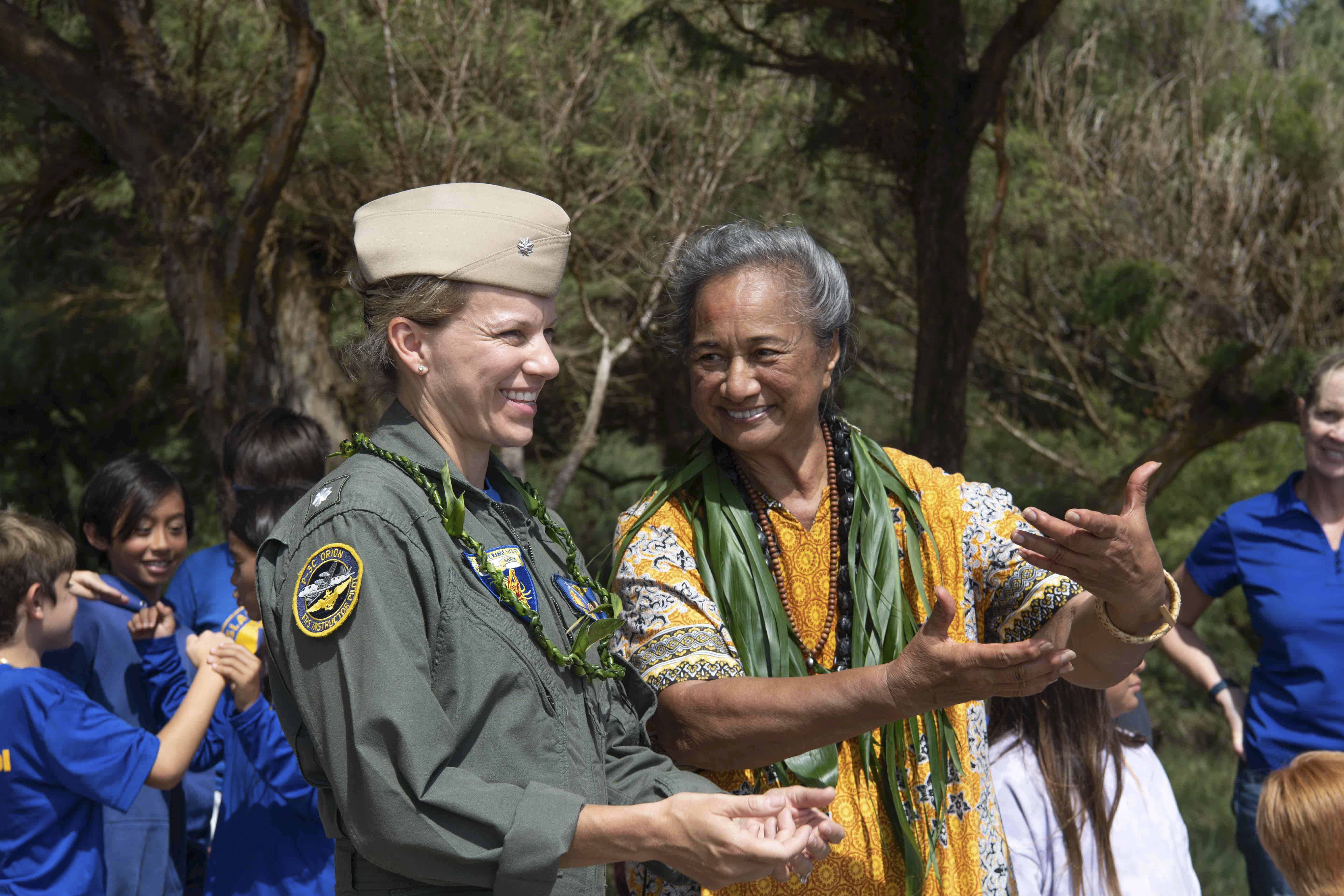Save our Shearwaters worked alongside the Endangered Seabird Recovery Project and Sabra Kauka, kumu (teacher) of Hawaiian studies at Island School in Lihue, to hold a blessing ceremony and release three rehabilitated ʻaʻo fledglings. Before releasing the birds, Jacqueline Nelson, wildlife rehabilitation manager for Save our Shearwaters, introduced 4th and 5th grade students from Island School to the ʻaʻo, showing the students how to identify an ʻaʻo and educating the students on the cultural history of these birds.
“Our mission is to rehabilitate injured, orphaned or ill birds that are native to Hawaiʻi and to get them back out into the wild,” said Nelson. “We are doing what we can to support the dwindling population of ʻaʻo. These birds need both parents to support the young during early life, so each bird we recover is essential to the survival of the species.”
The ceremony began with Kauka blessing each of the birds and releasing the first of three back into the wild.
“I am honored to be a part of this incredible service the community provides,” said Cmdr. Kacee Jossis Executive Officer of Pacific Missile Range Facility (PMRF), Barking Sands after releasing one of the birds. “It embodies not only our relationship with the community but also the value we place on the local ecosystem as environmental stewards.”
ʻAʻo earned their spot in Kauaʻi history by being an invaluable asset to the native fisherman. Fishermen learned that they could track schools of fish by watching the ʻaʻo soar out to sea in flocks and eventually circle around their food source as they dove for fish. Even more importantly, ʻaʻo are excellent nocturnal navigators and acted as a guide using the stars to find their way back to shore, aiding the fishermen in their journey home.
Unfortunately, this reliance on stars in the night sky has become a serious problem for the birds with the introduction of man-made lights on the island. These artificial light sources can overpower the natural light from the stars and moon, confusing the ʻaʻo fledglings as they leave their mountain nests for their nocturnal maiden voyages to sea. This fallout is a major reason for the drastic decline in the ʻaʻo population and has landed them on the endangered species list.
“Something we can all do to help these birds is to limit our use of lights at night,” said Nelson. “Each year ʻaʻo mothers only lay one egg and it takes years to see the newborn to maturity. The fledglings’ first journey out to sea is a key part of their life and it is essential to give them the best chance possible by reducing the amount of light that could lead them off course.”
PMRF participates in a program dubbed “Dark Skies” in an attempt to cut out potential dangers for these birds. All non-essential light on the installation is kept off each night from Sep. 15 to Dec. 15 in a concerted effort to maintain the delicate relationship between the baseʻs presence and the natural environment.
In a total role reversal from the traditional Native Hawaiian relationship with these animals, it is now the ʻaʻo that needs our help to find their way home. If you have any information regarding lost, orphaned, injured or ill native wildlife please call the Save our Shearwaters hotline at (808) 635-5177 or visit https://saveourshearwaters.org/ for more information. If you need to make a report for an animal you find on base please call the PMRF Natural Resources Hotline at (808) 208-4416.

Sabra Kauka a teacher at Island School Elementary shows Cmdr. Kacee Jossis, Executive Officer of PMRF, how to hold and release the 'A'o during E Ho’opomaika’o la Na Manu ‘A’o which is an annual release and blessing of the fledgling ‘A’o, Lihue, Hawaii, Oct. 18, 2023. ‘A’o use the light from the night sky to navigate and can be thrown off track by artificial lights on Kaua’i. Save Our Shearwaters’ mission is to rehabilitate these lost fledglings and release them back into the wild. (U.S. Navy photo by Mass Communication Specialist 2nd Class Louis Lea)